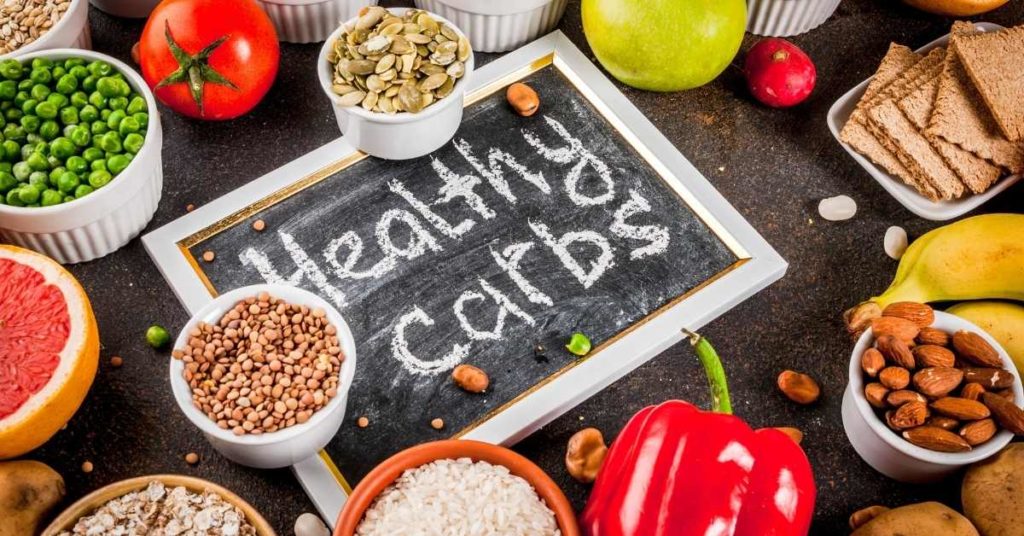What is the importance of vegetables in human nutrition?
Vegetables are optimal for ensuring a longer life and are the most valuable food product. The irreplaceability of vegetables in nutrition is determined by the fact that they are the leading suppliers of carbohydrates, vitamins, mineral salts, phytoncides, essential oils, and dietary fiber necessary for the normal functioning of the body.

Plant foods are high-energy foods. In the process of photosynthesis, plants accumulate solar energy and, carrying out a number of chemical transformations, produce adenosine triphosphoric acid (ATP), which is used to synthesize their proteins, carbohydrates, and fats, putting some of them in reserve. In the human body, there is a reverse process of disintegration of the energy bonds of plant foods, due to which carbohydrates, proteins, and fats that are already specific to humans are formed.
Vegetables are not only indispensable food products that support human vitality but also an effective remedy recognized by folk and scientific medicine. The nutritional value and medicinal properties of vegetables are due to the presence of chemicals of various compositions and structures, which have a broad pharmacological spectrum of action on the body and give dishes an original taste and aroma.
Vegetable food has a predominantly alkaline reaction, and its presence in the diet establishes optimal acid-base balance in the human body.
According to the Institute of Nutrition, the daily human need for protein is 80-100 g, for carbohydrates – 400-500 g, for organic acids – 2-3 mg, for minerals – from 0.1 mg (iodine) to 6000 mg ( potassium), in vitamins – from 0.2 mg (folic acid – vitamin B9) to 100 mg (ascorbic acid – vitamin C).
Every day a person needs about 400 g of vegetables. The scientifically based annual rate of vegetable consumption for a person, depending on the region of residence, ranges from 126 to 164 kg, including various types of cabbage – 35-55 kg, cucumbers – 10-13 kg, tomatoes – 25-32 kg, onions – 7- 10 kg, carrots – 6-10 kg, table beets – 5-10 kg, eggplants – 2-5 kg, sweet peppers – 3-6 kg, green peas and vegetable beans – 3-8 kg, gourds – 20-30 kg, other vegetables – 3-7 kg.
The ratio and composition of vegetables in the daily diet of the population depends on climatic conditions, place of residence, season, type of activity and age of the person.
What is in vegetables?
Vegetables, inferior in protein and fat content to animal products, are the leading supplier of carbohydrates and mineral salts. Vegetables contain biologically active substances, natural antioxidants, trace elements, vitamins, dietary fiber, enzymes, and structured water. Dietary fibers are suitable sorbents for removing various toxins.
Vegetables are juicy foods. Fresh vegetables have a high (65–96%) water content and a low (4–35%) dry matter content, most of which is soluble in water.
What is the role of water in plants?
Water gives vegetables freshness and juiciness and is a solvent for many organic substances. The nutrients dissolved in it (sugars, acids, nitrogenous, mineral substances) are better absorbed by the human body. The high water content in vegetables causes their low energy value (calorie content).
Despite their high water content, vegetables are of great importance in the human diet. This is explained by the fact that in a small amount of dry matter, there are many biologically important compounds.
What is the role of carbohydrates in plants?
Carbohydrates are the most abundant organic compounds in plants and form the basis of plant products. Carbohydrates accumulate in roots, tubers, seeds, and fruits and are then used as reserve substances. In vegetable products, solar energy is converted into chemical energy. Then through a chain of reactions in the human body, it is again converted into carbon dioxide, water, glucose, and free energy.

Disaccharides and polysaccharides are broken down in the human body, forming glucose and fructose. The oxidation of glucose is accompanied by the formation of adenosine triphosphoric acid (ATA), a source of energy. It is she who ensures the continuity of all physiological functions, above all – the higher nervous activity.
An essential component of human nutrition is indigestible carbohydrates, mainly cellulose (fiber), which form the basis of plant cell membranes. Fiber helps to move food through the digestive tract, remove cholesterol from the body, bind certain trace elements, reduce appetite, create a feeling of satiety, and normalize the activity of beneficial intestinal microflora. Lack of fiber in the diet leads to the development of obesity.
Sweet peppers, eggplant, carrots, vegetable beans, chicory salad, and parsley root are rich in fiber.
What is the role of proteins in plants, and which plants are rich in proteins?
Protein metabolism is the basis of all physiological processes in a living organism. In the human body, proteins account for 15-20% of the wet weight. The source of protein for humans are products of animal and vegetable origin.
The protein content in vegetables is low (1–2%), with the exception of legumes (4–6%). Some types of cabbage (kohlrabi, cauliflower, broccoli), vegetable beans, and parsley leaves are relatively rich in protein. Vegetable proteins are absorbed by the human body by 80%. Vegetables are optimal for weight loss.
Proteins make up the bulk of the cytoplasm and nucleus of plant and animal cells. All enzymes are proteins. Proteins are antibodies that provide immunity, and many hormones and proteins are part of hemoglobin and blood plasma. Proteins are polymeric molecules, which include 20 different amino acids, some of which can be synthesized by the body, and some must be supplied with food.
The most essential and often deficient amino acids are lysine, tryptophan, and methionine.
- Lysine in the human body is closely related to the processes of hematopoiesis, the synthesis of alkaloids. With its participation in the bones, calcium is accumulated. Most lysine is found in carrots, vegetable beans, spinach, cauliflower, and kohlrabi.
- Tryptophan is involved in the formation of hemoglobin and serum proteins necessary for the synthesis of vitamin PP. Tryptophan is found in large quantities in the protein of vegetable beans, green peas, and beets.
- Methionine is necessary for the synthesis of choline, adrenaline, and other biologically active substances in the body. Its deficiency leads to metabolic disorders, primarily lipids, and is the cause of severe diseases of the stomach and liver. Methionine is found in carrots, beets, white cabbage, cauliflower, radish, and parsley.
Of great value are specific proteins – enzymes that play the role of catalysts in digestion. Enzymes are stored only in fresh vegetables. In the process of drying, heat treatment, and due to improper storage, enzymes are destroyed, so only fresh vegetables are the most beneficial for humans.
The activity of peroxidase can be used to judge the overall redox process in the body. This enzyme is present in most vegetables; cabbage, lettuce, radish, radish, and carrots are especially rich in it.
The most significant amount of amylase, which accelerates the breakdown of starch, was found in vegetable beans and peas. Sucrose and raffinose stimulate the breakdown of disaccharides and regulate carbohydrate metabolism. Most of these enzymes are found in carrots and beets.
Which vegetables contain the most pectins?
Pectin substances are gelled intercellular substances consisting of high molecular weight carbohydrates. In the digestive tract, pectins are not digested and absorbed by the body, but they are sorbents of toxic substances and help reduce blood cholesterol.
A large amount of pectin contains parsley (root crops), sweet pepper, eggplant, watermelon, and carrots.

About Vitamins and Microelements, you will read in the following articles.
If you find this article useful, please share and comment below. Thank you!






Pingback: (2022) Vegetables Are Optimal Energy Sources For The Human Body | Childhealthcreation.com | How To Grow A Healthy Child?
Pingback: (2022) Vegetables Are Optimal Energy Sources For The Human Body. Top 10 Healthiest Vegetables | Childhealthcreation.com | How To Grow A Healthy Child?
Pingback: (2022) What Vitamins Are Found In Vegetables? | Childhealthcreation.com | How To Grow A Healthy Child?